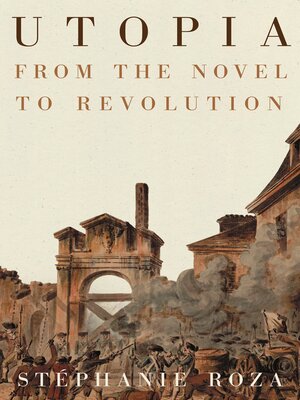
Sign up to save your library
With an OverDrive account, you can save your favorite libraries for at-a-glance information about availability. Find out more about OverDrive accounts.
Find this title in Libby, the library reading app by OverDrive.



Search for a digital library with this title
Title found at these libraries:
| Library Name | Distance |
|---|---|
| Loading... |
Until the Age of Enlightenment, utopia was a popular literary genre, but without concrete political effects. However, in the decades leading up to 1789, its status gradually changed from an entertaining thought experiment to a socialist project. Imagining the ideal city took on the task of articulating revolutionary transformation of society towards equality and social justice.
In Utopia, St�phanie Roza explores the nascent ideal of a community of property and labour, not yet called communism, and the thinkers who engaged with it in the lead-up to the French Revolution. These philosophers included �tienne-Gabriel Morelly, a fierce critic of private property and the mysterious author of the Code de la Nature; the Abb� de Mably, a radical republican and interlocutor of Rousseau; and Gracchus Babeuf, who, from the 1780s onwards, defended the natural right to subsistence and dreamed of a more fraternal world.
Together, they laid the foundations for modern socialist movements. In the crucible of the French Revolution, 'real equality' became the goal of a handful of conspirators gathered around Babeuf, who had meanwhile become the 'tribune of the people'. The Conspiracy of Equals was considered by Marx to be 'the first active communist party': the hopes and questions that ran through the group prefigured those of the militants of later periods, including today.
In Utopia, St�phanie Roza explores the nascent ideal of a community of property and labour, not yet called communism, and the thinkers who engaged with it in the lead-up to the French Revolution. These philosophers included �tienne-Gabriel Morelly, a fierce critic of private property and the mysterious author of the Code de la Nature; the Abb� de Mably, a radical republican and interlocutor of Rousseau; and Gracchus Babeuf, who, from the 1780s onwards, defended the natural right to subsistence and dreamed of a more fraternal world.
Together, they laid the foundations for modern socialist movements. In the crucible of the French Revolution, 'real equality' became the goal of a handful of conspirators gathered around Babeuf, who had meanwhile become the 'tribune of the people'. The Conspiracy of Equals was considered by Marx to be 'the first active communist party': the hopes and questions that ran through the group prefigured those of the militants of later periods, including today.







